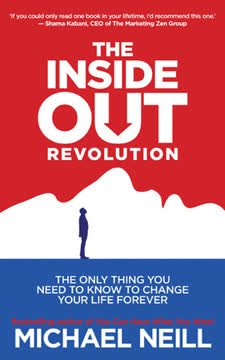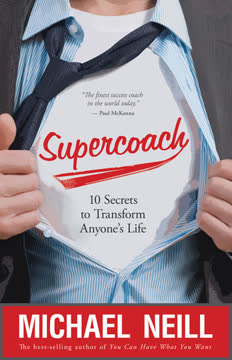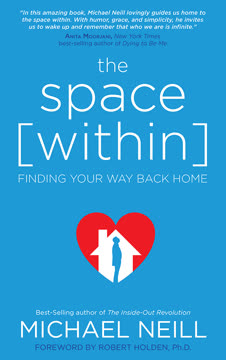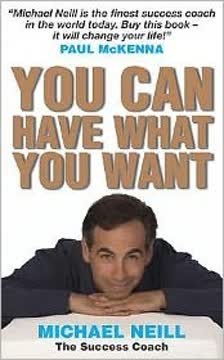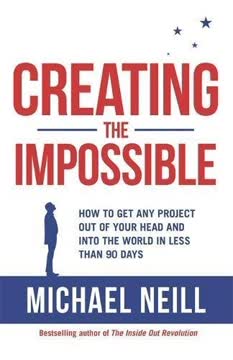Key Takeaways
1. Our experience is created from the inside out
We're living in the feeling of our thinking, not the feeling of the world.
Inside-out understanding. Our experience of life is not determined by external circumstances, but by our thoughts about those circumstances. This fundamental shift in perspective explains why two people can have vastly different reactions to the same event. It's not the event itself that causes our feelings, but our interpretation of it.
Implications of this understanding:
- We are not victims of our environment
- Our well-being is not dependent on external factors
- We have the power to change our experience by changing our thinking
This realization liberates us from the endless pursuit of trying to control our environment to feel better. Instead, it directs our attention inward, to the source of our experience.
2. Three principles shape our reality: Mind, Consciousness, and Thought
Mind is the intelligence of all things; Consciousness makes you aware; and Thought is like the rudder of a ship. It guides you through life, and if you learn to use that rudder properly, you can guide your way through life far better than you ever imagined.
Universal principles. These three principles are the fundamental building blocks of our psychological experience. Mind is the source of all intelligence and potential. Consciousness is our ability to be aware and experience life. Thought is the creative agent that shapes our individual realities.
How these principles work together:
- Mind provides the raw material of all experience
- Consciousness brings that experience to life
- Thought gives form and meaning to our individual realities
Understanding these principles helps us see that our experience is not fixed, but fluid and ever-changing. It opens up the possibility for new insights and fresh perspectives, even in seemingly unchangeable situations.
3. We have innate mental health and well-being
Every human being has innate mental health.
Original grace. We are born with innate well-being and mental health. This is our natural state, not something we need to create or achieve. Just as our physical body has an innate ability to heal itself, our psyche has an innate tendency towards well-being.
Implications of innate well-being:
- We don't need to "fix" ourselves
- Well-being is always present, even if temporarily obscured
- Our job is to allow our natural state to emerge, not to create it
This understanding takes the pressure off trying to become happy or mentally healthy. Instead, it encourages us to recognize and return to our innate well-being, which is always there beneath our temporary thoughts and feelings.
4. Meditation is our natural state, not a practice to be learned
There's nothing you can do that will quiet the mind faster than doing nothing to quiet the mind.
Natural meditation. Contrary to popular belief, meditation is not a skill to be learned or a state to be achieved. It is our natural state of being when we allow our mind to settle. The quiet, peaceful state we associate with meditation is always available to us when we stop trying to make it happen.
Accessing our natural meditative state:
- Stop trying to control or quiet the mind
- Allow thoughts to come and go without engagement
- Trust in the mind's natural tendency to settle
This perspective removes the struggle from meditation and makes it accessible to everyone. It's not about forcing a particular state, but about allowing our natural state of peace and clarity to emerge.
5. Insights, not techniques, lead to lasting transformation
All an 'insight' really is… is a new thought.
Power of insights. Transformative change doesn't come from applying techniques or strategies, but from having new insights about the nature of our experience. These insights are simply new thoughts that shift our perspective and change our relationship to life.
Characteristics of insights:
- They come spontaneously, not through effort
- They feel obvious once we have them
- They lead to lasting change without struggle
This understanding shifts our focus from trying to change ourselves or our circumstances to being open to new insights. It suggests that the solution to our problems is not more knowledge or better techniques, but a deeper understanding of how our experience works.
6. Understanding thought's role frees us from emotional turbulence
We don't experience our children, parents, or partners; we experience our thinking about our children, parents, and partners.
Thought as creator. Our emotional experiences are not caused directly by people or events, but by our thoughts about those people and events. This understanding frees us from being at the mercy of our circumstances and allows us to have a more stable emotional life.
Implications of understanding thought's role:
- We're not victims of our emotions
- Our feelings can change instantly with new thoughts
- We don't need to fear or avoid certain experiences
This perspective doesn't mean we never have negative emotions, but it changes our relationship to those emotions. We can experience them without being overwhelmed, knowing they're just temporary thought-created experiences.
7. Living insightfully allows life to unfold beautifully
When we see that truth, or indeed any truth about the human condition, it can set us free.
Insightful living. When we understand how our experience is created, we can live more in harmony with the natural intelligence of life. Instead of constantly trying to control and direct our life, we can allow it to unfold naturally, guided by our innate wisdom.
Benefits of living insightfully:
- Less stress and struggle
- More creativity and spontaneity
- Greater resilience in face of challenges
This approach to life doesn't mean we become passive, but that we act from a place of wisdom and clarity rather than from insecurity or fear. It allows us to be more effective while experiencing more peace and enjoyment.
8. Results matter less than our state of mind
Either I have a wonderful life and drive a Porsche or I have a wonderful life and ride a bicycle – either way, I keep showing up each day and playing.
Inner-directed living. While results in the external world are still relevant, they become less important than our internal state of well-being. This shift in priorities paradoxically often leads to better results, as we act from a place of clarity and wisdom rather than pressure and fear.
Implications of this perspective:
- Less attachment to specific outcomes
- More enjoyment of the process
- Greater resilience in face of setbacks
This approach allows us to play the game of life more freely and creatively, without the constant pressure of needing things to turn out a certain way. It leads to a more enjoyable and often more successful life experience.
9. Humility enables us to enjoy life's game fully
Humility isn't thinking less of yourself; it's thinking of yourself less.
True humility. Humility in this context doesn't mean self-deprecation or low self-esteem. It means recognizing that we're part of something larger than ourselves, and that we're not in control of or responsible for everything that happens in life.
Benefits of humility:
- Less pressure and self-importance
- More appreciation for life as it unfolds
- Greater connection to others and the world
This understanding allows us to play the game of life more lightly and joyfully. We can give our best effort without being overly attached to the results, knowing that we're part of a larger unfolding that we can't fully control or understand.
10. We are conduits for a greater creative force, not its source
You're not the pilot on this mission. You're the plane.
Conduits of creativity. Rather than seeing ourselves as the source of our creativity and success, we can recognize that we're conduits for a greater creative force. This shift in perspective takes the pressure off us to make everything happen and allows us to be open to inspiration and guidance from a deeper source.
Implications of being a conduit:
- Less personal pressure and stress
- More openness to unexpected possibilities
- Greater sense of being supported by life
This understanding doesn't mean we become passive, but that we act in partnership with a greater intelligence. We do our part, but we're not solely responsible for the outcomes. This allows for a more relaxed, inspired, and often more effective way of living and creating.
Last updated:
FAQ
1. What is "The Inside-Out Revolution" by Michael Neill about?
- Core Premise: The book introduces a radical new understanding of how human experience is created, arguing that our reality is shaped from the inside out through our thoughts, not by external circumstances.
- Three Principles: It centers on the Three Principles—Mind, Consciousness, and Thought—as the foundational elements behind all human experience.
- Transformative Conversation: Neill presents the idea that simply understanding these principles can lead to profound, effortless change in well-being, performance, and relationships.
- Practical Spirituality: The book blends psychological insight with spiritual wisdom, aiming to help readers access innate mental health and clarity without techniques or self-improvement strategies.
2. Why should I read "The Inside-Out Revolution" by Michael Neill?
- Immediate Impact: The book promises that understanding its core message can lead to an immediate improvement in well-being, resilience, and creativity, regardless of your starting point.
- Simplicity and Depth: Neill offers a simple yet profound explanation of how life works, making complex ideas accessible and actionable for anyone.
- Universal Relevance: The principles apply to all areas of life—relationships, work, health, and personal growth—making it relevant for a wide audience.
- Endorsements and Results: The book is highly praised by coaches, psychologists, and business leaders for its transformative effects and practical wisdom.
3. What are the key takeaways from "The Inside-Out Revolution" by Michael Neill?
- Experience is Inside-Out: Our feelings and experiences are created by our own thinking in the moment, not by external events or circumstances.
- Innate Well-Being: Every person has an inbuilt capacity for mental health, clarity, and resilience, which can be accessed by understanding the Three Principles.
- No Techniques Needed: Lasting change comes from insight and understanding, not from practicing techniques, strategies, or self-improvement routines.
- Freedom from Suffering: Recognizing the inside-out nature of experience reduces fear, stress, and the need to control life, leading to greater peace and possibility.
4. What are the Three Principles (Mind, Consciousness, and Thought) in "The Inside-Out Revolution" by Michael Neill?
- Mind: Refers to the universal intelligence or energy behind all life, the source of wisdom and creative potential.
- Consciousness: The capacity to be aware and experience life; it determines the quality and level of our experience at any moment.
- Thought: The creative force that shapes our individual reality; our experience of life is always mediated by the thoughts we have in the moment.
- Interplay of Principles: Together, these principles explain how all human experience is generated, making them the foundation for understanding and transformation.
5. How does Michael Neill define the "inside-out" understanding in "The Inside-Out Revolution"?
- Experience Flows Through Us: Neill asserts that we live in the feeling of our thinking, not the feeling of the world—our experience is generated from within.
- Contrast with Outside-In: Most people believe circumstances or other people cause their feelings, but the book argues this is an illusion.
- Implications for Change: Realizing the inside-out nature of experience means we don’t need to change the world to feel better; a shift in understanding is enough.
- Freedom and Possibility: This perspective opens up new levels of resilience, creativity, and peace, as we are no longer at the mercy of external events.
6. What practical advice or methods does "The Inside-Out Revolution" by Michael Neill offer for personal transformation?
- No Techniques Required: The book emphasizes that there are no steps, exercises, or techniques to practice—transformation comes from insight, not effort.
- Stay in the Conversation: Neill encourages readers to stay open, keep reading, and reflect on the ideas, trusting that understanding will emerge naturally.
- Notice Thought in Action: By observing how your feelings change with your thinking, you begin to see the inside-out nature of experience firsthand.
- Let Go of Control: The book suggests letting go of the need to manage thoughts or feelings, trusting the mind’s natural ability to return to clarity and well-being.
7. What is meant by "innate mental health" and "original grace" in "The Inside-Out Revolution" by Michael Neill?
- Innate Mental Health: Neill argues that everyone is born with a natural state of well-being, clarity, and resilience, which is always available beneath the noise of thought.
- Original Grace: This term refers to the idea that happiness, love, and connection are our default settings; we don’t need to earn or create them.
- Obscured, Not Lost: Our well-being can be temporarily obscured by thought, like clouds covering the sun, but it is never truly absent.
- Effortless Return: When we stop trying to fix ourselves and allow our minds to settle, we naturally return to this state of original grace.
8. How does "The Inside-Out Revolution" by Michael Neill address stress, negative emotions, and suffering?
- Feelings as Thought Shadows: The book teaches that all feelings, including stress and suffering, are the result of thought in the moment, not external events.
- No Need to Fix: Instead of trying to control or avoid negative emotions, understanding their source allows us to experience them without fear or resistance.
- Temporary and Harmless: Negative feelings are seen as temporary and harmless signals of our current thinking, not indicators of real danger or problems.
- Freedom from Fear: This understanding reduces the power of negative emotions and helps us bounce back more quickly to well-being.
9. What is the role of insight and "new thought" in creating change, according to "The Inside-Out Revolution" by Michael Neill?
- Insight as Change Agent: True transformation happens through insight—a fresh, new thought that changes our perspective at a fundamental level.
- Natural Process: Insights arise naturally when the mind is quiet and open, not through force or effort.
- Formula for Miracles: Neill presents the idea that Mind + New Thought + Consciousness = New Reality, meaning every new insight creates a new experience of life.
- Sustained Change: Unlike willpower or techniques, insights lead to lasting change because they shift our understanding at the core.
10. How does "The Inside-Out Revolution" by Michael Neill suggest we approach goals, results, and success?
- Results Are Not Happiness: The book challenges the belief that happiness comes from achieving goals, showing that well-being is available regardless of outcomes.
- Play the Game of Life: Neill encourages readers to approach life with a sense of play and freedom, knowing that nothing essential is at stake.
- Inner-Directed Living: Success is redefined as living from well-being and wisdom, rather than chasing external validation or results.
- Paradox of Results: Ironically, when we stop needing results for happiness, we often achieve more with less stress and greater enjoyment.
11. What is the "path of the soul" and how does it go "beyond empowerment" in "The Inside-Out Revolution" by Michael Neill?
- Beyond Victim and Creator: The book describes a continuum from victimhood to empowerment, but suggests the highest level is being a conduit for wisdom—a "path of the soul."
- Letting Life Unfold: Instead of trying to control or force outcomes, we allow a deeper intelligence (Mind) to guide us, leading to inspired action and flow.
- Humility and Trust: This path involves humility, recognizing we are not the ultimate pilot of our lives, but can trust the intelligence behind life.
- Effortless Contribution: Living this way leads to a sense of purpose, contribution, and alignment with the greater unfolding of life.
12. What are the best quotes from "The Inside-Out Revolution" by Michael Neill and what do they mean?
- "We’re living in the feeling of our thinking, not the feeling of the world." – This encapsulates the core message that our experience is created from within, not by external events.
- "Every human being has innate mental health." – Reminds us that well-being is our natural state, always accessible beneath temporary thought.
- "You only need to see one spiritual fact to change your life forever." – Suggests that a single deep insight can transform your entire experience.
- "There’s nothing you need to do, be, have, get, change, practice, or learn in order to be happy, loving, and whole." – Emphasizes the effortless, already-present nature of happiness and wholeness.
- "Humility isn’t thinking less of yourself; it’s thinking of yourself less." – Points to the freedom and peace that come from letting go of self-absorption and trusting a greater intelligence.
Review Summary
The Inside-Out Revolution receives mostly positive reviews, with readers praising its simple yet profound message about the power of thoughts in shaping reality. Many find it life-changing, appreciating Neill's accessible writing style and use of analogies. The book's focus on inner wisdom and well-being resonates with readers seeking personal growth. Some criticize it as vague or repetitive of existing self-help concepts. Overall, reviewers value the book's emphasis on changing perspective from the inside out to achieve happiness and peace of mind.
Similar Books
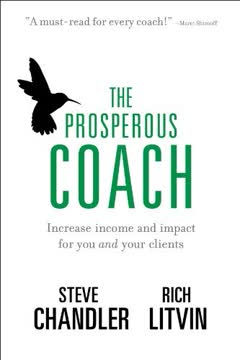
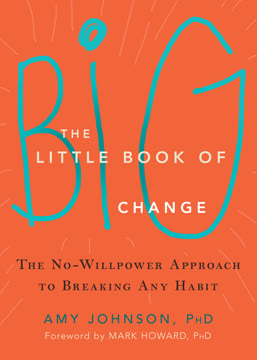
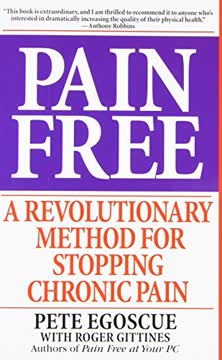
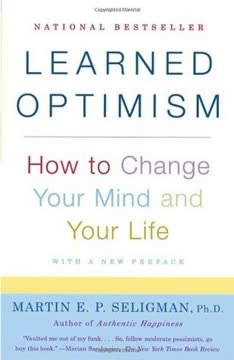
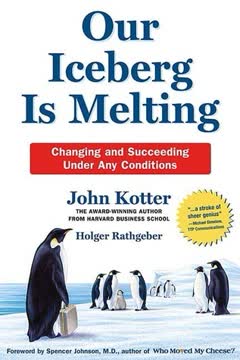
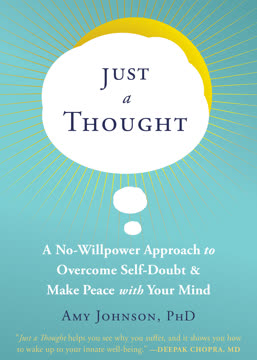

Download PDF
Download EPUB
.epub digital book format is ideal for reading ebooks on phones, tablets, and e-readers.
